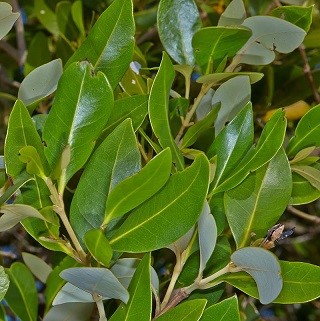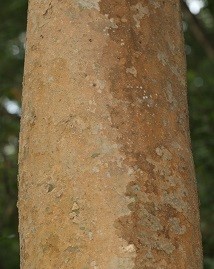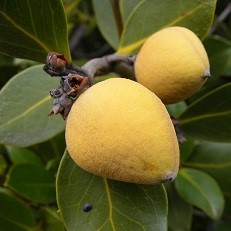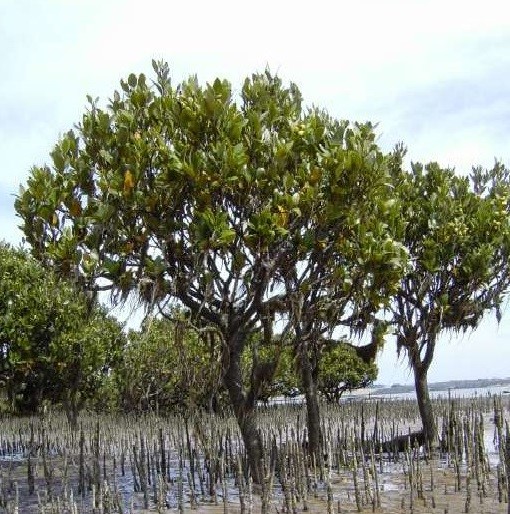Trees
Avicennia marina (Forssk.) Vierh.
Avicennia marina (Forssk.) Vierh.
Description :
A small, shrub like, evergreen tree 1 to 3 m tall, with stem diameters
of 25 to 30 cm. Leaves are simple. 3 to 8 cm long and 1.5 to 3.5 cm wide. It
has pneumatophores (appendages that look like knees supporting the bole). The
flowers are in tightly packed heads, are dungy yellow with an orange throat and
are quite fragrant. It flowers in February to June. The fruit is 12 to 18 mm
long and 10 to 12 mm wide, usually with only one seed. The fruit matures
between May and July. Artificial regeneration may be needed to preserve the
tree in Pakistan. Profuse natural regeneration can be seen in protected mud
flats in the coastal belt. Grains have alternate layers of pore bearing tissue
and loose large cell tissue without pores. It has no known insects or pest
problems. It can be reproduced both from seed and by vegetative means. Seed has
low viability. Growth is slow, it takes 5 years to grow 1 m in height. It may
reach heights of 7 to 8 m and diameters of 30 cm on good sites. Color of
sapwood is Brown, grey with heavy density
Distribution :
A native tree in the
tidal swamps and creeks from the Red Sea to the Arabian Sea coast of Pakistan
and India. In Pakistan it is found along the coast and tidal creeks from
Karachi in the Sindh to Makran coast in Balochistan. An intolerant tree that
requires full sunlight to develop to a mature tree. It grows well on swampy
saline, coastal mud flats. It requires a precipitation zone up to 125 mm/yr. It
prefers a humid to arid, hot sub-tropical, winter/monsoon to tropical maritime
climate with a temperature range of 5 to 40°C.
Uses :
This tree has been over
harvested because of its desirable fuel characteristics. It is a valuable
member of the coastal forest and should be protected. Also used as fodder,
fuel and tannin.



